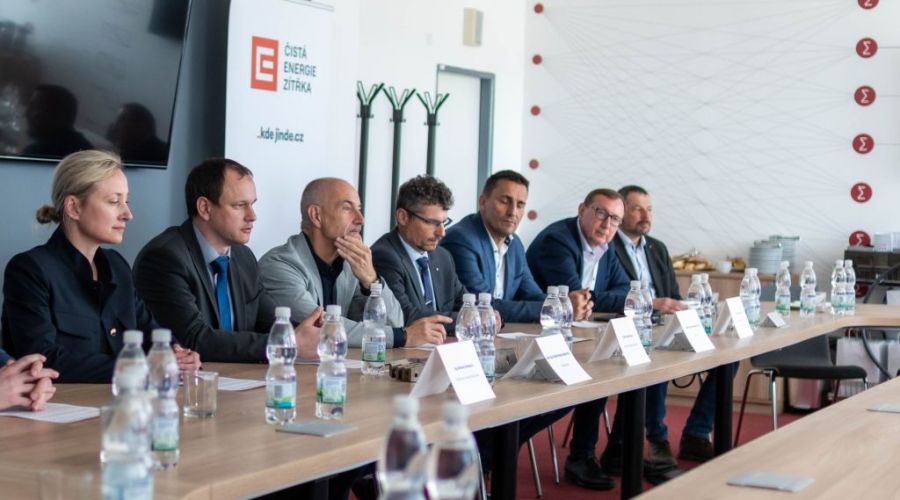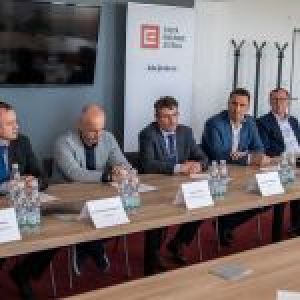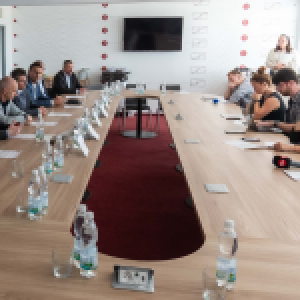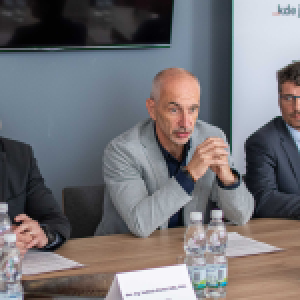South Bohemian higher education institutions will cooperate in the development of the energy sector in South Bohemia

New small modular and standard nuclear units, renewables, or energy savings, are all projects on which the University of South Bohemia and the Institute of Technology and Business ought to work together. This follows from a joint meeting of representatives of both institutions, as well as the governor Martin Kuba and representatives of ČEZ. The aim is to expand employment opportunities for students and researchers and to strengthen technical and other fields in the South Bohemian Region.
Technicians, but also graduates of science, economics, security or health fields. All of them already find employment in South Bohemia in the operation of existing energy sources and, above all, in upcoming projects. However, their number is expected to grow significantly.
‘It is clearly true that if we are to produce electricity here, we want to have adequate training capacity, service and, above all, research and development. And I am glad that both of our universities have actively seized this opportunity. Of course, this increases the demands on them, but the young people from South Bohemia who are working in this field must be given the opportunity to stay in their home region. In the future, we should be a region where these students will commute,’ explains Martin Kuba, the Governor of the South Bohemian Region.
This is confirmed by the Rectors of both schools, who have agreed to intensive cooperation.
‘I announced when I was elected that I would want to work more with businesses and municipalities in the region. We want to share information, work on joint projects and make the most of the capacities and opportunities of both schools, CEZ and the region. And energy is an area where we definitely meet,’ says Pavel Kozák, Rector of the University of South Bohemia.
‘We already cooperate with ČEZ on a number of projects, we have the first future operator of Temelín here, energy specialists participate in selected lectures, and provide us with expert presentations and consultations. And we want to strengthen this trend further together with the University of South Bohemia,’ adds Vojtěch Stehel, Rector of VŠTE.
ČEZ makes no secret of the fact that it is pursuing its own goals by significantly expanding cooperation with South Bohemian higher education institutions.
‘We have already started recruiting for small modular reactor projects, the first of which should be built in Temelín and we will need more than a hundred qualified workers just to operate it. We are also preparing standard nuclear units, developing renewable energy projects and we could go on. All of this represents a huge opportunity for young people in the South Bohemia region,’ confirms Silvana Jirotková, Director of ČEZ's SMR department.
Currently, about 1 500 employees and several hundred contractors work at the Temelín power plant itself. Most of the workers of the new power plants under construction are expected to pass through its operation. In addition, the first workers involved in its start-up will gradually be retiring.
‘Temelín is facing a similar generational change in the future as has already taken place at Dukovany. At the same time, in line with the planned operation, new resources and the intentions of the region, we want to significantly strengthen the training capacities here. Among other things, in the coming years, we will move part of the capacity of the training centre, which is used by virtually all employees of Czech nuclear power plants, from Brno,’ concludes Bohdan Zronek, member of the Board of Directors and Director of the Nuclear Power Division.
In 2019, ČEZ already opened a unique Technical and Implementation Centre in the wider Temelín area, and in 2022 new laboratories focused on metrology. The personnel training centre, the Temelín-specific part of which is to be built in southern Bohemia, is almost equivalent to a smaller higher education institution. So far, it has its headquarters in Brno and more than 450 employees of ČEZ, suppliers and the State Office for Nuclear Safety go through several specialised programmes each year. The longest study programme here is a two-year one, aimed at future operators or reactor physicists and other top professionals.






